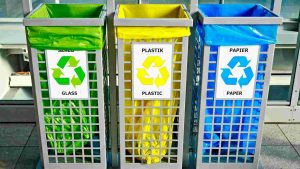![]()
The Future of AVSF
The automotive industry has witnessed a growing concern regarding environmental sustainability in recent years, leading to an increased focus on responsible vehicle disposal. Authorised vehicle scrapping facilities play a crucial role in this paradigm shift, ensuring that end-of-life vehicles are dismantled and recycled in an eco-friendly manner. As we look ahead to the next decade, several trends and predictions emerge that will shape the future of these facilities.
Rising Demand for Electric Vehicle (EV) Scrapping
With the rise in electric vehicle adoption, the need for specialised scrapping facilities for EVs is expected to grow significantly. Unlike traditional internal combustion engine vehicles, EVs contain complex battery systems and electronic components that require specialised handling and recycling processes. Authorised scrapping facilities will need to invest in advanced technologies to safely and efficiently dismantle and recycle EVs, addressing the unique challenges posed by their components.
Advanced Recycling Technologies
The next decade will witness a significant shift towards advanced recycling technologies in authorised scrapping facilities. Innovations such as automated dismantling processes, artificial intelligence, and robotics will streamline operations, enhance efficiency, and minimise environmental impact. These technologies will allow for more precise separation of materials, enabling higher rates of recycling and decreasing the amount of waste sent to landfills.
Circular Economy Integration
The idea of a circular economy, where resources are reused and recycled to minimise waste, will play a pivotal role in the future of authorised vehicle scrapping facilities. These facilities will increasingly focus on extracting valuable materials from end-of-life vehicles and reintroducing them into the manufacturing process. This shift towards a circular economy will reduce the automotive industry’s environmental footprint and contribute to resource conservation.
Stricter Environmental Regulations
As awareness of environmental issues continues to grow, governments are likely to introduce stricter regulations governing vehicle scrapping. Authorised facilities must comply with stringent environmental standards to ensure responsible and sustainable disposal practices. This may include implementing measures to minimise air and water pollution and adopting environmentally friendly technologies for handling hazardous materials.
Collaboration with Automakers
To streamline the scrapping process and improve the recyclability of vehicles, authorised facilities will engage in closer collaborations with automakers. This collaboration may involve designing vehicles with easier disassembly in mind, facilitating the recycling of specific materials, and establishing take-back programs to ensure responsible disposal. Such partnerships will contribute to the development of more sustainable automotive supply chains.
Consumer Awareness and Education
Rising consumer awareness about the environmental consequences of vehicle disposal will drive demand for authorised scrapping services. Facilities must invest in educational programs to inform consumers about the advantages of utilising authorised scrapping services over informal and environmentally harmful alternatives. This awareness will contribute to a shift in consumer behaviour, fostering a culture of responsible vehicle disposal.
Global Standardisation
The next decade will witness increased efforts towards global standardisation of authorised scrapping practices. Establishing consistent standards for dismantling processes, material recovery, and environmental management will facilitate international cooperation and ensure a unified approach to responsible vehicle scrapping. This standardisation will also enhance transparency and accountability in the industry.
Emergence of Green Certification
With sustainability becoming a key concern, authorised scrapping facilities may adopt green certification programs. These certifications will serve as a mark of compliance with environmental standards and responsible disposal practices. Automakers and consumers alike will increasingly prioritise scrapping facilities with recognised green certifications, fostering a competitive environment for sustainability within the industry.
Conclusion
In conclusion, the future of authorised vehicle scrapping facilities holds promising developments that align with the global shift towards environmental sustainability. As electric vehicles become more prevalent, recycling technologies advance, and environmental regulations tighten, these facilities will play an essential role in ensuring that end-of-life vehicles are responsibly dismantled and recycled. The next decade presents exciting opportunities for innovation, collaboration, and the establishment of industry-wide standards that will shape the future landscape of authorised vehicle scrapping.





